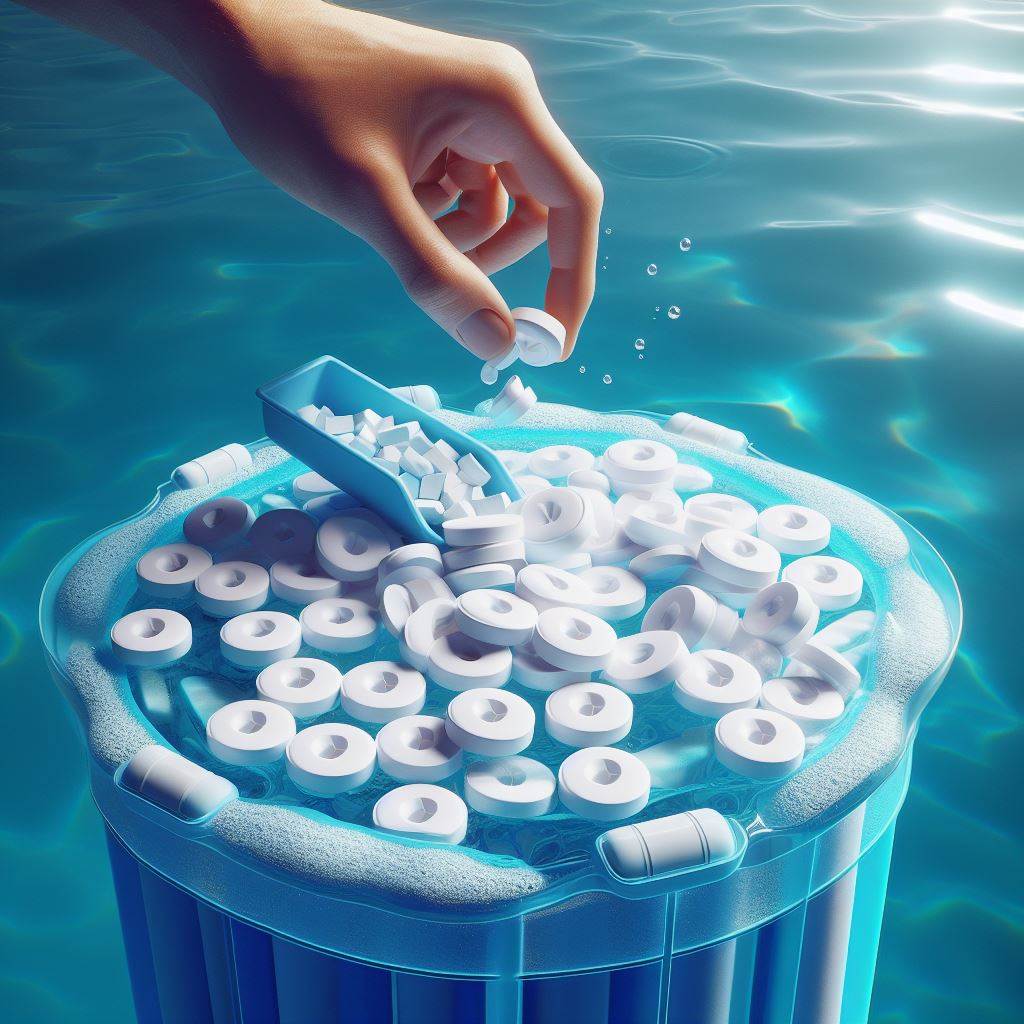In the management of home swimming pools, choosing the correct specification of chlorine tablets is one of the key factors in ensuring water safety and maintenance efficiency. This article will guide you on how to select the most appropriate size of chlorine tablets based on different characteristics of home swimming pools, including considerations of pool volume, usage frequency, and environmental factors.

Relationship Between Pool Volume and Chlorine Tablet Specifications
The size of the pool directly affects the type and quantity of chlorine tablets required. Typically, the packaging of chlorine tablets will indicate the appropriate water volume, and home pool managers should choose the size of the chlorine tablets based on the specific capacity of their pools.
Small Pools (such as children’s pools)
Capacity: Usually ranges from several hundred to several thousand gallons (about 1,000 to 5,000 liters).
Recommendation: Chlorine tablets suitable for small pools generally have a lower chlorine content to avoid high concentrations that could irritate skin or eyes.
Example: Choose 1-inch or 1.5-inch diameter tablets, which dissolve slowly and are more suitable for small volumes of water.
Medium to Large Home Pools
Capacity: From 5,000 to 20,000 gallons (approximately 19,000 to 75,000 liters).
Recommendation: For pools of this size, it is typically recommended to use 3-inch diameter standard chlorine tablets. These tablets dissolve at a moderate rate and provide a continuous disinfection effect.
Example: Most standard home pools are suitable for this size of chlorine tablet.
Extra Large Pools or Frequently Used Pools
Capacity: Over 20,000 gallons.
Recommendation: For large or frequently used pools, a larger quantity of chlorine tablets or a higher concentration of chlorine is necessary to ensure water quality. It may be necessary to use multiple chlorine floaters.
Example: Choose several 3-inch chlorine tablets or consider using professional-grade large chlorine tablets to meet the high demand for water treatment.
Considering Usage Frequency and Environmental Factors
In addition to pool size, the choice of chlorine tablets should also consider usage frequency and other environmental factors:
Usage Frequency
High Frequency Use: For pools that are used frequently, choose chlorine tablets that dissolve quickly and can rapidly increase chlorine concentration to cope with frequent contamination.
Occasional Use: If the pool is not used frequently, you can choose tablets that dissolve slowly to maintain a long-term stable level of chlorine.
Environmental Factors
High-Temperature Environments: In hot weather, the evaporation rate of chlorine increases, which may require the use of more chlorine tablets or more frequent supplementation.
Rainy or Windy: Rain and strong winds can cause a decrease in the chlorine concentration in the pool, requiring adjustments in the amount and frequency of chlorine tablet use based on weather changes.
Conclusion
Choosing the appropriate specification of chlorine tablets is crucial for maintaining the water quality of home swimming pools. Pool managers should select the most suitable type and quantity of chlorine tablets based on the specific size of the pool, frequency of use, and environmental factors. By scientifically managing the use of chlorine, not only can water safety be ensured, but also the comfort and satisfaction of pool usage can be enhanced. The correct selection and use of chlorine tablets are fundamental to keeping home swimming pools clean and safe, and are an indispensable part of any pool maintenance plan.

 Instant
Quote
Instant
Quote Email
Us
Email
Us